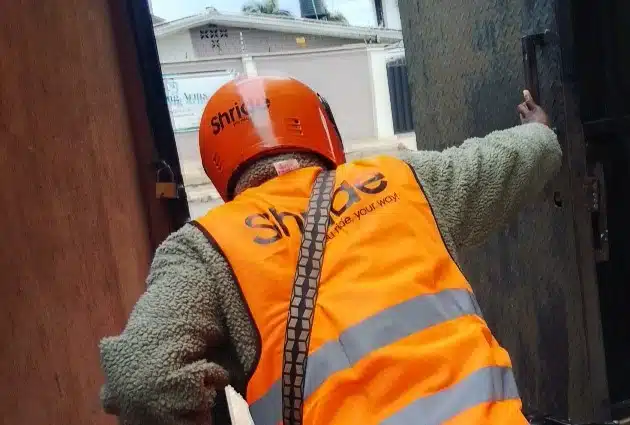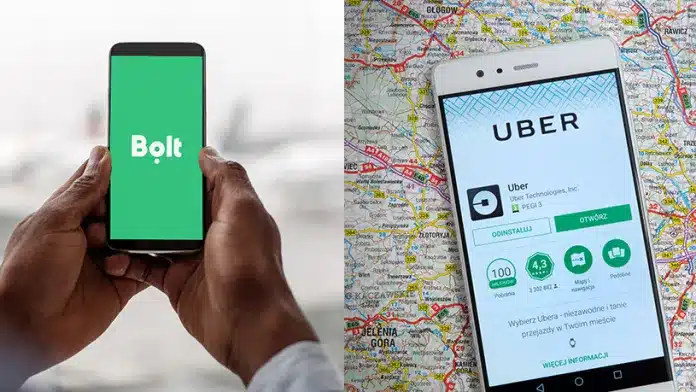Mobility & Logistics
Tech-enabled transport and delivery systems that disrupt traditional transport and delivery services. Players in this sector use apps or websites as enablers and constitute a grey area for existing transport and courier laws.
Top stories

Shride is taking on Nigeria’s informal mobility scene with a platform built for everyday commuters. Its hyper-local service allows Nigerians to order motorbikes and tricycle rides from the comfort of their homes.

After 12 years and one million deliveries, Nigerian logistics company, Cargoplus is expanding to the UK to streamline shipping between the UK and Nigeria.

Ride-hailing and logistics company, Yango, has expanded its services in Senegal by launching a food delivery platform integrated into its SuperApp.

Sendstack pivots from last-mile delivery to CTRL, a logistics software for corporate clients, aiming to streamline large-scale logistics with tracking, payment processing, and communication tools.

Uber Eats, an online food ordering and delivery platform, has introduced several in-app courier safety features, designed to improve overall safety for delivery people in South Africa.

Logidoo, a logistics startup providing cross-border services to African eCommerce businesses, has received a $50,000 grant from the International Development Research Centre (IDRC) to develop AI solutions.

Glovo plans to use EV bikes for delivery in some parts of Lagos as it strikes a partnership with Nigerian EV manufacturer, Siltech. Both companies say a pilot will start in Ikate, Lekki and Victoria Island in a few months.

Maad, a tech and logistics platform that digitises Francophone Africa’s retail markets for informal retailers, has announced the completion of a $3.2 million debt and equity seed round.

Months after expanding into Kenya, a Nigerian logistics startup says it has raised $1.9 million in pre-seed funding, consisting of equity and debt, to improve and expand its operations in both markets.

Glovo, an online food delivery platform, will cease operations in Ghana on May 10 to focus on other African markets, two years after investing $3.7 million to expand operations in the West African country.

Several former Jumia Food gig workers are reportedly stranded four months after the online delivery food business exited from seven African countries, including Côte d’Ivoire, Kenya, Morocco, Nigeria, and Uganda.

Moove, a Nigerian vehicle financing startup, has raised $10 million in debt financing from Stride Ventures to expand its operations in India.

Ride-hailing company Bolt has announced that it will remain in Kenya despite the National Transport and Safety Authority’s (NTSA) refusal to renew its licence. It plans to continue negotiating the renewal with the regulator.

Drivers who can’t afford the ₦700,000 down payment for a LagosRide vehicle go through a partner that makes the payment for them, but they still won’t own these vehicles after making payments for four years.

South African ride-hailing drivers, including Uber and Bolt, plan to turn off their e-hailing apps starting today, Monday, July 17, 2023, due to ongoing safety concerns and low pay.

In the wake of Nigeria’s Petroleum Industry Act, the country’s fuel dealers have been thrust into uncharted territory. This piece analyses how the removal of fuel subsidy in June 2023 has prompted a dramatic shift to ‘Just-In-Time’ inventory management and credit-led supply chain models, triggering a seismic shift in traditional operations.

Ride-hailing drivers could embark on another strike action to make sure their demands are met, but can they really win this fight?

Ride-hailing drivers demand a 200% increase in fares, which Bolt believes will negatively impact their earnings.

Bolt has increased ride prices in Lagos Nigeria following the fuel subsidy removal. However, it falls below expectations of drivers.

While Bolt and Uber riders complain about the price increase on ride-hailing platforms, drivers say there hasn’t been an official increase. The price increase has been attributed to surges caused by a drop in the number of active drivers. After an 18% increase last October, drivers are anticipating a higher increase.
